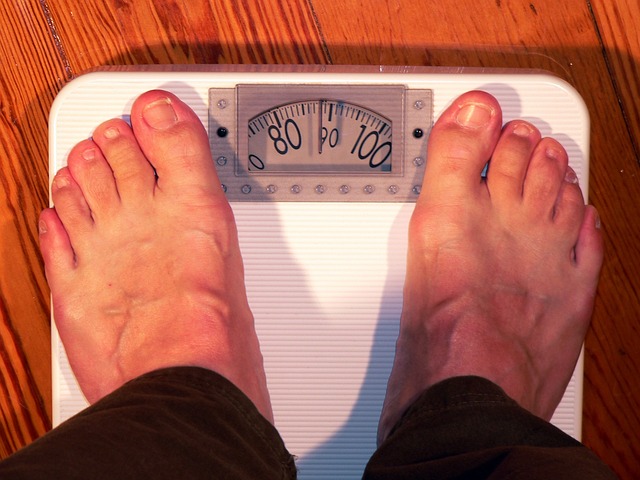A Recent article titled "Every fifth person in the 15-49 years age group overweight or obese in Uttar Pradesh, National Health survey unveils"
Obesity is a global problem. Recent studies have reported more than 1.9 billion adults overweight and 650 million obese world wide. In India more than 135 million people are affected by obesity. The prevalence of overweight and obese people in India is a fast growing health concern that needs to be addressed.
What is Obesity?
Obesity is a complex chronic lifestyle disease characterized by a person carrying excessive amount of body fat. It is a medical problem that has been shown to increase the risk of death from other chronic diseases such as cardiovascular disease, diabetes, high blood pressure, PCOS, certain types of cancers among others.
Obesity is calculated based on a person's Body Mass Index (BMI). A person with a BMI of over 30 is considered obese and one who has a BMI between 25 and 29.9 is considered overweight.
The Body Mass Index is used often to diagnose obesity, because for most people it provides a reasonable estimate of body fat. However, BMI by itself does not directly measure body fat. Muscular athletes for example may have a BMI in the obesity category even though they don't have excess body fat.
Obesity is a chronic lifestyle disease and some people may have a genetic predisposition to becoming overweight or obese. However, a person's lifestyle - diet, exercise, mental stress - plays a role in determining weather a person becomes obese or not.
Obesity may also be a result of eating disorders such as binge eating disorder which cause weight gain and an emotional dependency on food.
Obesity in India - The Statistics
The article starts of by sharing the gender wise assessment of people in Uttar Pradesh who were classified as either overweight or obese - 21.3% of women and 18.5% of men.
It says that the data from the national family health survey (NFHS) four and five indicate a five-percentage point rise on the count.
"According to health experts, against 16.5% of the people falling in the category in NHFS-4, the number has gone up to 19% for women and 6% for men in NHFS-5."
- Prevalence of obesity in India is 40.3% according to a study done in 2021. The growth in obesity in the country is a nationwide phenomenon.
- According to this study zonal variations showed that obesity is highest in the south at 46.51% and lowest in the east at 32.96%.
- It also found that obesity was higher among women than men at 41.88% versus 38.67%. higher in urban as compared to rural at 44.17% versus 36.08%.
- Education levels impacted obesity with higher education implying higher obesity 44.6% of college graduates versus 38% of uneducated people.
- Physical activity also plays a role with 43.7 1% of inactive people versus 32.56% of vigorously active people classified as obese.
The article points out "Once obesity was considered a problem in wealthy countries experts admitted that it was shifting towards countries where a majority of the population falls into low and middle in come groups.
Overall the worldwide prevalence of obesity has nearly tripled over the past four decades.
Dubbing it a raising nutrition concern, doctor say that excessive body weight was an open invitation to diseases.
Why is Obesity Dangerous?
Contrary to popular belief in India obesity is not just about carrying around some extra weight. Obesity is a debilitating chronic lifestyle disease that has several complications and real world implications.
- Cardiovascular disease: people with obesity are more likely to have high blood pressure and high cholesterol levels. These increase the risk of coronary heart disease, risk of heart failure, myocardial infarction, and strokes. Heart disease is the number one cause of death in India today.
- Diabetes: people with obesity are at a higher risk of getting type 2 diabetes. This is because obesity may affect the way insulin is used by the body and raises the risk of insulin resistance. Currently India is the diabetes capital of the world.
- Cancers: people with obesity are at an increased risk of certain types of cancers such as cancers of the uterus, breast, ovary, colon, esophagus, liver, pancreas, kidney, prostrate, cervix, endometrium, gallbladder, and rectum.
- Infertility: people who are overweight or obese are at a higher risk of PCOS and have a harder time getting pregnant. Increased weight also puts a person in the high risk pregnancy category putting them at a higher risk of preeclampsia and other pregnancy related issues.
- Obstructive Sleep Apnea: obesity increases the risk of sleep apnea where a person's breathing stops and starts during sleep. Severe obesity worsens the condition further.
- Osteoarthritis: people who are overweight or obese have increased stress on their weight bearing joints. This is in addition to increased inflammation within the body. This may lead to osteoarthritis.
Why Diets Don't work?
Diets don't work.
- If you have gone on a diet you know that it often doesn't last long. The benefits, if any, that you experience while on a diet goes away when you go back to your regular food.
- When you go on a diet the mindset is "I like this food but I am not allowed to eat it" this is not sustainable in the long run.
- Most diets are in fact harmful for health calling for the elimination of entire food groups. For example cutting out carbs.
- Many diets also call for extreme calorie restriction which means that you are not eating enough or giving your body the nutrients it needs because of excessive focus on weight loss.
- Most diets are not sustainable in the long run and increase cravings leading you to go into a cycle of starving and bingeing.
- Most diets are not scientific and aim at weight loss at any cost. This in turn leads to deficiencies and overall worse health.
- Diets lead to creating an unhealthy relationship with food.
- Most diets are marketing gimmicks only promoting weight loss and not based in any research. This may not do you any good.
- Diets are focused on short term benefit of weight loss at the cost of long term health.
- These diet set you up for failure by being unrealistic and unscientific. Most people who go on a diet never reach their healthy weight or normal weight and the weight loss they experience is only in the short run.
Instead of wasting your time money and resources on fad diets, shift your focus to improving your lifestyle one step at a time - good quality nutrition, increased physical activity and tools to combat mental stress
How can you combat Obesity with Lifestyle
Obesity is a preventable, treatable, and potentially reversible condition with the right lifestyle choices.
- A whole food plant based diet, has been shown to help people move towards their healthy weight while also eating a balanced and nutritious diet. A plant centric diet is also helpful for people who have become obese or overweight because of hormonal issues.
- Eat more whole plant foods - fruits, veggies, greens, dals, unpolished grains, nuts, seeds: They are calorie dilute, nutrient dense & high-fiber. This ensures that your diet is nutritionally balanced and filling and helps you move towards your healthy weight.
- Cut down deep fried sugary foods: They have little nutrition, are high in calories, and low-fiber. These foods let you pile on calories without any nutrition leading to overall poorer health. It also makes you hungry faster because of lack of fiber and aids unnecessary weight gain.
- Manage cravings better: Snacking piles on more calories than you may realise. Most of these calories are poor quality sources - maida, oil, sugar, etc., the best way to combat this is to manage your cravings better. You can do this by eating healthier meals, stocking up on healthy sweets and snacks and practicing mindfulness.
- Resistance training: Regular resistance training has shown to help burn fat even when you're at rest. Picking up the weight at the gym or a well-designed resistance training program at home can go a long way. Regular physical exercise also helps you eat better.
- Regular movement: In addition to a regular strength training routine, moving more through the day helps improve overall health and better digestion.
- Stress management: Investing in mental health and building tools to better manage stress helps lower cravings. This also goes a long way in ensuring that you don't use food as a crutch.
Obesity Needs to be taken Seriously
The article concludes "Blaming unhealthy eating habits, poor stress management and lack of exercise for the trend experts urge people to be mindful of risks to their health.
Public Health experts called for policy and action on this count, stating that "the size of any public health problem grows bigger with UP on account of its sheer population size."
- India with its complex history of malnutrition and underweight people has today become one of the top 5 countries and terms of obesity.
- Obesity is growing faster than the population or policy can catch up, India may have a huge problem in its hands without tools to correctly manage it unlike globalized countries. The impact of obesity is huge as it increases your risk of everything from severe obesity, obstructive sleep apnea, risk of fractures, coronary heart disease, type 2 diabetes, risk of preeclampsia among pregnant women and many more.
- The mindset of a large percentage of the population in India is to view gaining weight as a good thing because not so long ago it was a sign of prosperity and a sign that you are no longer malnourished.
- The problem of overnutrition in India, much like in globalized countries, is real and one that needs to be spoken about and awareness needs to be created of the various risk factors that obesity brings with it.
According to this study, "Indians have a higher burden of obesity and have relatively lower muscle mass compared to the whites[1]. Indians develop metabolic syndrome, hypertension, and type 2 diabetes mellitus (T2DM) earlier compared to whites, which is independent of BMI[2,3]. The available evidence suggests the age-adjusted prevalence of obesity has doubled in men and has increased three folds in women over two decades (1970s-1990s) in India[4]."
Next Steps - Get Started Today
If you or someone you know is overweight or obese, we may be able to help
1. Book an online consultation with Dr. Achyuthan Eswarto understand more about specific lifestyle changes and how you can adopt them
2. Subscribe to our 100% whole food plant based Weight-loss meal plan, designed to help you move towards your ideal weight with a balanced and nutritious diet from the comfort of your home - Bengaluru only
3. Stock up on delicious and sweets and snacks that are sugar/jaggery-free, oil-free, maida-free and plant-based - Available Pan-India







